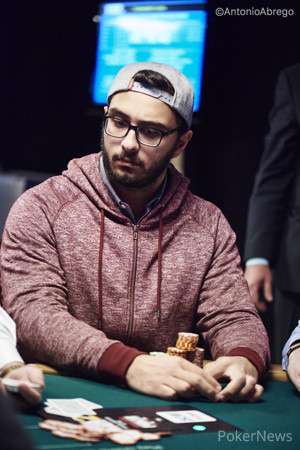

He eventually resigned from his party, after disputes with the leadership, but remained in the parliament as an independent deputy.
#Alexandros papadopoulos series
He made also a series of allegations against mainstream politicians who he said had openly or secretly collaborated with the junta. There he was hosted by Oriana Fallaci, his companion who was to become his biographer.Īfter the restoration of democracy during the Metapolitefsi, Alexandros Panagoulis was elected as Member of Parliament for the Center Union - New Forces party in the November 1974 elections. Panagoulis went into self-exile in Florence, Italy, in order to continue the resistance. In August 1973, after four and a half years in jail, he benefited from a general amnesty that the military regime granted to all political prisoners during a failed attempt by Papadopoulos to liberalize his regime. He reportedly refused amnesty offers from the junta. He was eventually placed in solitary confinement at Bogiati, from which he unsuccessfully attempted to escape on several occasions. He was soon re-arrested and sent temporarily to the camp of Goudi. As a result of political pressure from the international community, the junta refrained from executing him and instead incarcerated him at the Bogiati (Boyati) Military Prison near Athens on 25 November 1968.Īlexandros Panagoulis refused to cooperate with the junta, and was subjected to physical and psychological torture.
#Alexandros papadopoulos trial
Panagoulis was put on trial by the Military Court on 3 November 1968, condemned to death with other members of National Resistance on 17 November 1968, and subsequently transported to the island of Aegina for the sentence to be carried out. He also stated that he had no regrets about his attempt to kill Papadopoulos as "he destroyed the legal government - he abolished the liberties of the people". In an interview held after his liberation, Italian journalist Oriana Fallaci quoted Panagoulis as saying: I didn’t want to kill a man. The attempt failed and Panagoulis was arrested. He returned to Greece where, with the help of his collaborators, he organized the 13 August 1968 assassination attempt against Papadopoulos, close to Varkiza. He went into self-exile in Cyprus in order to develop a plan of action. He deserted from the Greek military because of his democratic convictions and founded the organization National Resistance. After the fall of the Colonels' regime and the restoration of parliamentary rule, Panagoulis became the Secretary-General of E.DI.N., on 3 September 1974.Īlexandros Panagoulis participated actively in the fight against the Regime of the Colonels. The organisation later became known as Hellenic Democratic Youth (E.DI.N.). He joined the youth organisation of the Centre Union party (E.K.), known as O.N.E.K., under the leadership of Georgios Papandreou. He studied at the National Technical University of Athens in the School of Electrical Engineering.įrom his teenage years, Alexandros Panagoulis was inspired by democratic values. Panagoulis spent part of his childhood during the Axis occupation of Greece in the Second World War on this island. His father was from Divri ( Lampeia) in Elis (Western Peloponnese) while his mother was from the Ionian island of Lefkada. He was the second son of Vassilios Panagoulis, an officer in the Greek Army, and his wife Athena, and the brother of Georgios Panagoulis, also a Greek Army officer and victim of the Colonels' regime, and Efstathios, who became a politician.

After the restoration of democracy, he was elected to the Greek parliament as a member of the Centre Union (E.K.).īiography Family, childhood and education Īlexandros Panagoulis was born in the Glyfada neighbourhood of Athens.

He became famous for his attempt to assassinate dictator Georgios Papadopoulos on 13 August 1968, but also for the torture to which he was subjected during his detention. He took an active role in the fight against the Regime of the Colonels (1967–1974) in Greece. Alexandros Panagoulis ( Greek: Αλέξανδρος Παναγούλης 2 July 1939 – ) was a Greek politician and poet.


 0 kommentar(er)
0 kommentar(er)
